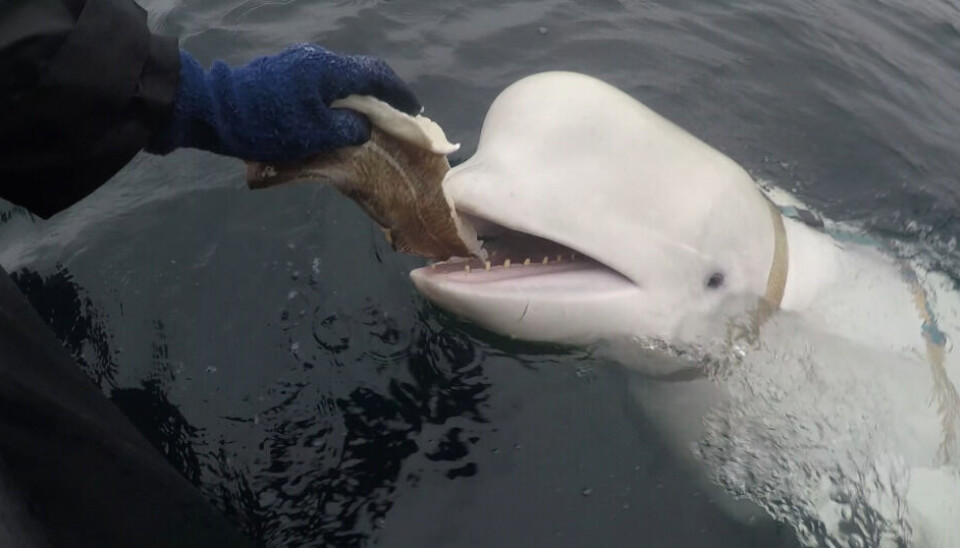
Bullet hole found on ‘Whaledimir’
A bullet hole is found on ‘Whaledimir’ - the Russian-origin Beluga whale that last weekend was found dead in the waters outside Stavanger in Norway.
“When I saw his body and the multiple injuries, I immediately knew he had been killed by gunshots,” says Regina Haug, founder of OneWhale, the animal rights group with a mission protect the whale.
“I even saw a bullet lodged in his body. There is no question that this kind, gentle animal was senselessly murdered,” Regina Haug makes clear.

The Beluga whale was found floating dead on August 31 and was later taken out of the water.
As previously reported by the Barents Observer, the Beluga has likely escaped from a Russian navy facility north of Murmansk. In 2019, the tame whale first approached people in fishing boats near the northern island of Ingøya. He later stayed for months in the waters of Hammerfest harbour before he started to swim from fjord-to-fjord south along the coast of Norway.
The OneWhale group had been actively working on a professional relocation operation to move him to safer waters where he could have joined other belugas. The Norwegian Directorate of Fisheries had granted permits in June, and the plan was to bring the whale to Jarfjord near the Norwegian border town of Kirkenes on the coast to the Barents Sea.
OneWhale and the animal rights’ group NOHA have filed a report to the police and the Norwegian National Authority for Investigation and Prosecution of Economic and Environmental Crime (Økokrim), asking for a thorough investigation.
The official autopsy report is still pending.















